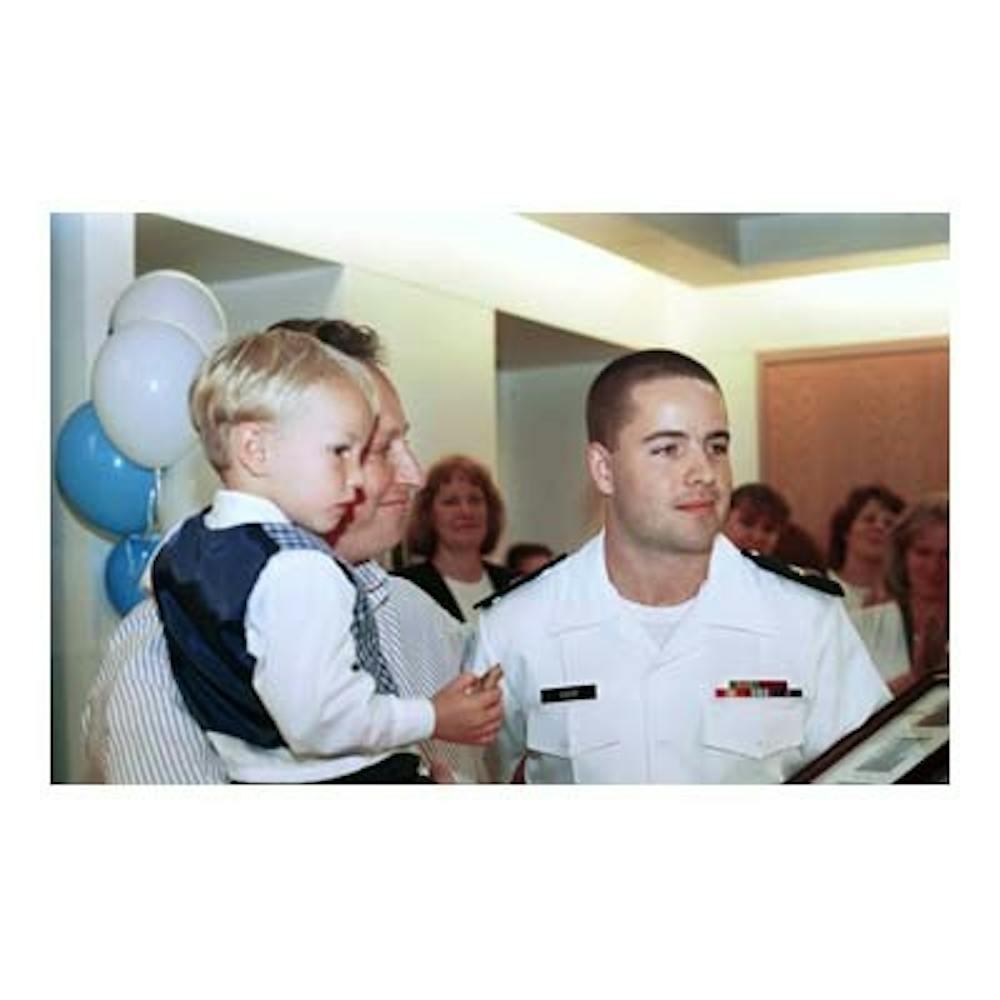
His case was all about beating the odds. A year and a half ago, Jim Sweet, owner of a chain of Arby's restaurants in Delaware County, came to the Hospital of the University of Pennsylvania and was diagnosed with a type of leukemia that, left untreated, would kill him in three to four years. He would have to get a bone marrow transplant. Although the process often proves unsuccessful, the search for a suitable donor took only three months. A "perfect match" was found -- a one in three million chance. Sweet, 42, finally met his savior over the weekend at HUP, 15 months after the surgery that saved his life. Donors and recipients rarely meet because of strict National Marrow Donor Program provisions. Donor Damon Cook, 27, a Navy officer candidate stationed in Pensacola, Fla., came up to Philadelphia with his mother for a presentation at HUP yesterday. Sweet and Cook had dinner together the night before. "It's amazing how much alike we are," Sweet said. "We had a wonderful time talking." Cook was able to meet most of Sweet's extended family at a heart-warming gathering that brought Cook's mother to tears. "When you see a face," Cook's mother said, "it changes everything." The Sweet family presented two gifts to Cook. Sandy, Sweet's wife, gave Cook a picture of the Sweets' five children and a bag of lifesavers candy. Cook and his mother also received two Penn sweatshirts from the hospital staff. "Not only did he save me," Sweet said, "he saved a whole family, and that's so important." But Cook does not feel extraordinary because of what he did. "I would do it again," he said. Cook decided to be registered with the NMDP database in 1993 when asked to donate some extra blood for a Navy-wide bone marrow drive when he entered the military. When he found out in late April that he was a possible match, Cook was flown up to Georgetown University Hospital for tests. Doctors extracted the marrow in late June. The procedure was so painful that Cook was given general, rather than local anaesthesia. But the pain "didn't last that long," said Cook, a man who routinely donates blood. Sweet's transplant -- the first one performed at Penn with tissue from an unrelated donor -- was led by David Porter, director of allogenic bone marrow transplantation at HUP's Cancer Center. "A bone marrow transplant is generally reserved for patients with incurable cancers and is by far the most intensive therapy in all of medicine," Porter said. Sweet had to endure aggressive chemotherapy and massive doses of radiation to prepare his body for the new bone marrow. One in five patients who undergo the procedure die from complications. But Sweet says now he feels "terrific -- 100 percent." And though the recovery period for the surgery is usually no less than six months, Sweet "wanted to work a month after," said Kathleen Duffy, the nurse practitioner who works with Porter. "He's got his cellular phone on all the time," she added. While still work-driven, Sweet said he now has a new outlook on life. "I used to be a type-A personality," Sweet said. "Now I am a type-A personality with more feeling."
The Daily Pennsylvanian is an independent, student-run newspaper. Please consider making a donation to support the coverage that shapes the University. Your generosity ensures a future of strong journalism at Penn.
DonatePlease note All comments are eligible for publication in The Daily Pennsylvanian.




